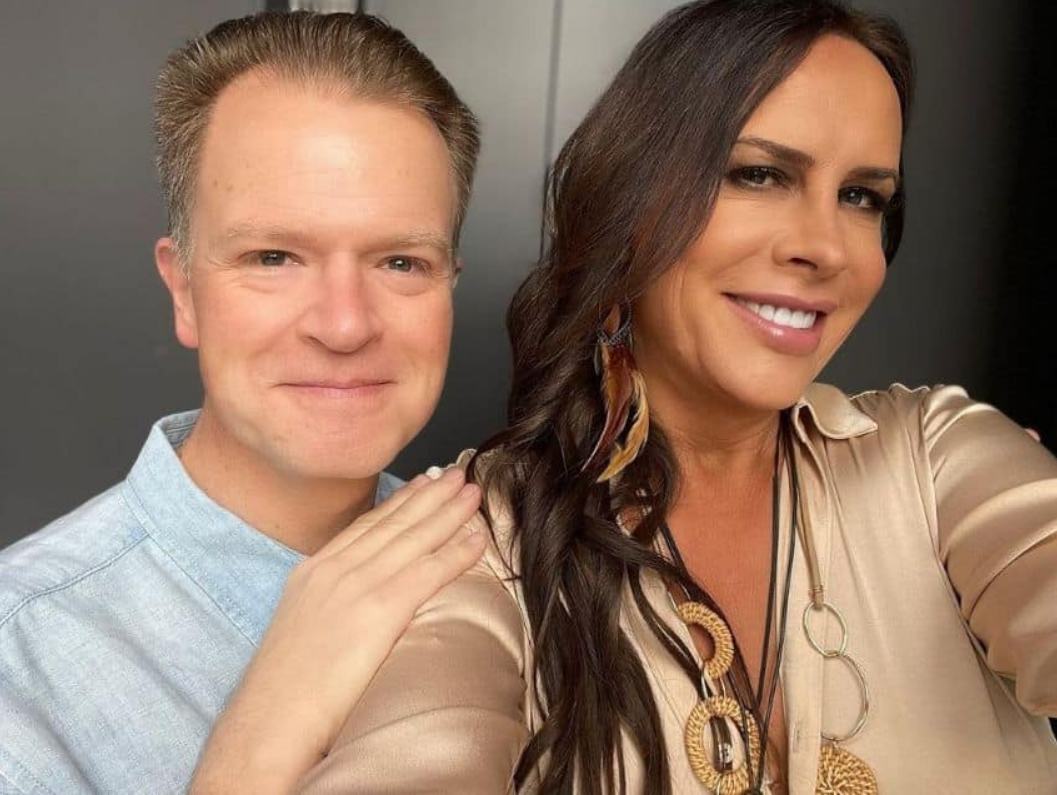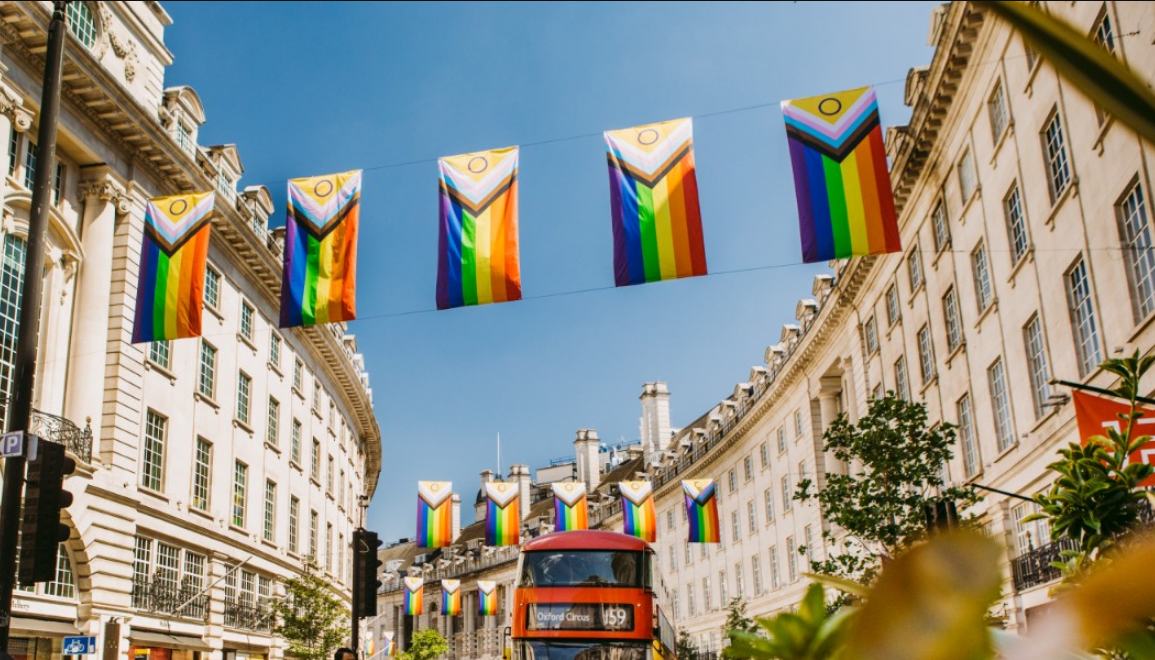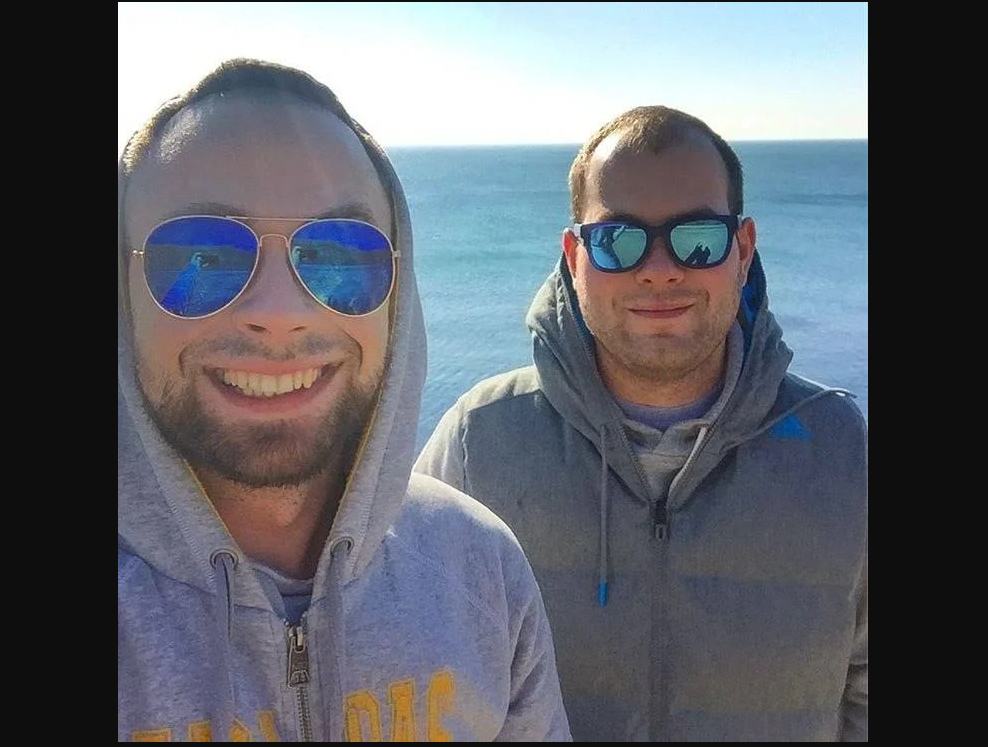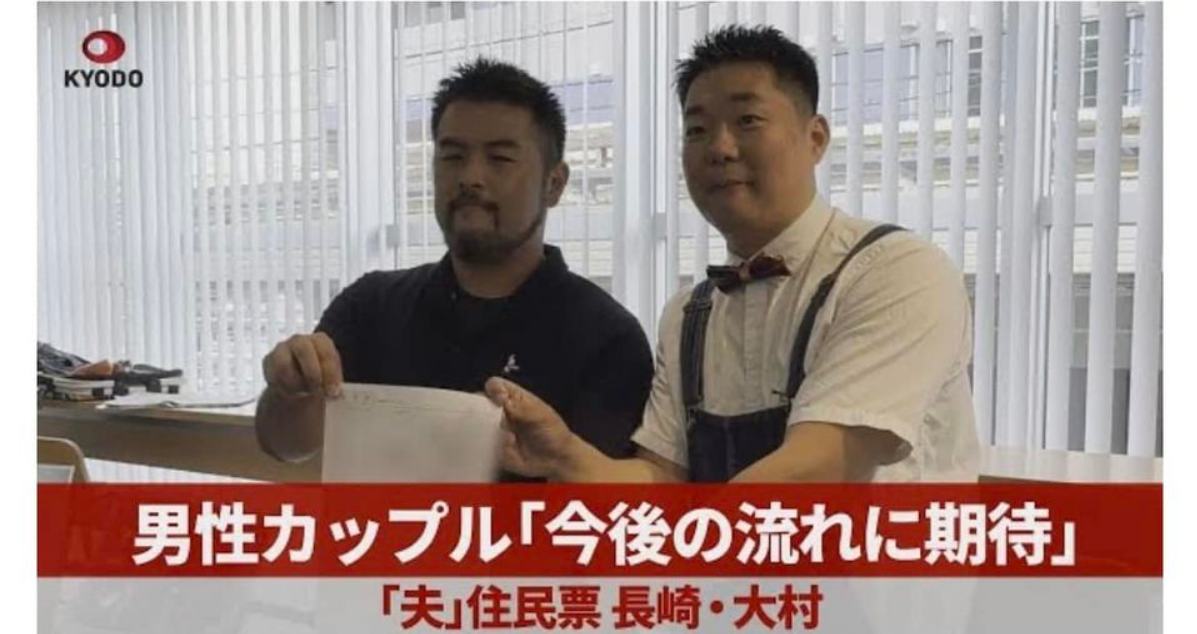World
Out in the World: LGBTQ news from Europe and Asia
Lufthansa is commemorating Pride Month

FRANCE

Transgender actress Karla Sofía Gascón has filed a legal complaint against French far-right politician Marion Maréchal-Le Pen, after the Reconquête Party leader posted a tweet decrying the fact that Gascón was awarded Best Actress at the Cannes Film Festival. The complaint has been joined with complaints from six French LGBTQ advocacy groups.
Gascón has been making waves since her international breakthrough performance in the musical gangster film “Emilia Pérez” at the Cannes Film Festival last month. In the film, she plays a cartel leader who hires a lawyer played by Zoe Saldaña to help her flee Mexico with her wife, played by Selena Gomez, so that she can get gender-affirming surgery so she can live as a woman.
The Spanish actress became the first trans woman to win the Best Actress award at the Cannes Film Festival.
After her win, Maréchal-Le Pen posted a tweet that said Gascón’s victory came at a cost for women.
“Therefore, a man receives the prize for … best actress at Cannes. Progress for the left is the erasure of women and mothers,” Le Pen posted on May 26.
Gascón’s lawyer, Etienne Deshoulières, told Agence France-Presse she had filed a legal complaint for “sexist insult on the basis of gender identity.”
The organizations Mousse, Stop Homophobie, Familles LGBT, Adheos, Quazar, and Fédération LBGTQ+ have all filed similar complaints over Maréchal-Le Pen’s tweet.
Maréchal-Le Pen has responded to the complaint by asserting that she will not be silenced.
She is currently on the campaign trail leading the far-right Reconquête Party in elections to the European Parliament scheduled for June 9. She comes from a long pedigree of far-right French politicians who have all been opponents of LGBTQ rights. Her grandfather, Jean-Marie Le Pen, founded the far-right Front National party, which is now led by her aunt Marine Le Pen as the National Rally Party. She has frequently spoken of her desire to repeal same-sex marriage.
Before this all blew up, Gascón told a press conference at Cannes about her own experiences with discrimination as a trans woman.
“People who are trans are subjected to insults or death threats because they exist. In Mexico, there are harsh phrases when addressing trans people. It can be gross,” she said. “I think we should be taken for what we are. We have to continue fighting for our rights. We have our body and we’re allowed to change it.”
“We’re just normal people … I think in the world, you should be treated with respect.”
“Trans people are just normal people,” Spanish actress Karla Sofía Gascón said when asked about her non-binary character in Jacques Audiard’s ‘Emilia Perez’ #cannes2024. pic.twitter.com/BRECoys9jV
— Deadline Hollywood (@DEADLINE) May 19, 2024
In addition to Gascón’s acting award, “Emilia Pérez” scored tremendous reviews from critics at Cannes. A U.S. release date has not yet been announced.
SPAIN

The coalition of LGBTQ groups that were working together to guide the 2026 Gay Games in Valencia, Spain, has pulled out of the event in protest over what they’ve called a hijacking of the project by the city’s newly elected government, which includes a far-right anti-LGBTQ party in the governing coalition.
Spain’s third-largest city was chosen as the games’ host in November 2021, beating out Munich, Germany, and Guadalajara, Mexico. Originally Valencia’s Gay Games organization was led by a coalition of local LGBTQ groups in partnership with the city council.
But that changed last year, when the center-right People’s Party and the far-right Vox party took over the city government. The LGBTQ groups allege that the city reduced their role on the board in an attempt to take over the games, and that the new government has been hostile to LGBTQ people. They also say that the government has censored LGBTQ books, plays, and films.
On May 27, the LGBTQ+ groups — Lambda, Avegal and Dracs, and the umbrella organization València Diversitat Foundation — announced they were pulling out of the games and encouraging the Federation of Gay Games to withdraw from Valencia and award the 2026 games to another city.
“After the last local elections, the Popular Party and Vox have promoted an entire campaign of attacks and cuts in rights against members of the group,” FVD Secretary Jorge Garcia told Spain’s El Salto newspaper. “We have seen how children’s books were withdrawn or plays and films were canceled simply for addressing LGTBI themes or for showing people from the group.”
FVD is calling on the Federation of Gay Games to move the event to another city that is more LGBTQ-friendly, suggesting Munich as a possible alternate venue as it was one of the original bidders for the 2026 event. They’re also saying that unless FVD moves the event, they will “call for a boycott at the local, national, and international level.”
But so far, the federation has said it’s not budging.
In response to the pullout, the federation issued a statement saying that the games would go ahead in Valencia and that the federation has faith that the city government is hosting the games for the right reasons.
“After confidently receiving assurances from the València City Council about their commitment to the organization of the event, the FGG can confirm that the Gay Games will continue to be held in Valencia in 2026,” the statement reads. “The FGG has met various times with them to gain assurances from them about their commitment to the funding of the event, the availability of government-owned sports and culture venues, and the confirmation that participants will be able to attend and compete as their authentic selves.”
This isn’t the first time the Gay Games has experienced turmoil.
After being postponed a year due to the pandemic, last year’s Gay Games Hong Kong was divided and co-hosted with Guadalajara, Mexico, amid concerns about the worsening human rights and democracy situation in China, and deepening opposition from some local officials who were more closely aligned with Beijing.
The far-right Vox party has long been hostile to LGBTQ rights in Spain and has seen its fortunes rise along with other conservative or right-leaning parties across Europe. In Spanish cities and regions where they’ve come into power either alone or in coalition with the People’s Party, it has repealed local laws meant to protect LGBTQ people from discrimination and conversion therapy. On the national level, it has campaigned to repeal same-sex marriage and legal recognition of trans people.
GERMANY

German airlines Lufthansa is celebrating Pride Month 2024 by spoofing the company’s name with “Lovehansa” on several aircraft in its fleet. On X Deutsche Lufthansa AG wrote:
“It’s that time of the year where we highlight the importance of openness, tolerance, and equal love. We’ve been coloring the air with Lovehansa for the last two years and will continue to spread the love across borders and skies. Happy Pride Season!
It’s that time of the year where we highlight the importance of openness, tolerance, and equal love.
We’ve been coloring the air with Lovehansa for the last two years and will continue to spread the love across borders and skies.
Happy Pride Season! 🏳️🌈🫶#Lufthansa pic.twitter.com/OrJMYBjJ7P
— Lufthansa (@lufthansa) June 1, 2024
UNITED KINGDOM

A conservative Christian group has launched a petition calling for the city of Westminster in central London to remove Progress Pride flags from Regent Street, alleging that the flags are divisive, offensive, and “ugly.”
The group Christian Concern has collected more than 20,000 signatures of its 50,000 goal on its CitizenGo petition. The petition is addressed to Westminster City Council Leader Adam Hug and calls on him to “stop authorizing large scale displays of Pride Progress flags in Westminster, in particular Regent Street.”
Progress Pride flags have been strung across Regent Street — home to a world-famous luxury shopping district — for years, and they’re scheduled to return for June and July this year. Regent Street is controlled by the Crown Estates, a semi-public agency that manages the monarch’s property holdings.
In their letter, Christian Concern says the Progress Pride flags sow division in society.
“They do not promote inclusion — in fact, they exacerbate tensions between people of different characteristics — religions, sexual orientations, and gender identity. Many people experience these flags as an attack on historic, traditional beliefs about sex and gender. They send the message that people holding these views — which are worthy of respect in a democratic society — are not welcome,” the letter says.
In the petition’s explanatory note, Christian Concern alleges the Progress Pride flag is particularly offensive, because it includes colors symbolic of trans people and people of color.
“Rainbow flags are bad enough — but ‘Progress Pride’ flags add transgender stripes — a movement that has done untold damage to gender-questioning children in recent years. They also add brown and black stripes, wrongly conflating racial identity with sexual and gender identities,” it says.
“These flags are particularly offensive, and ugly to boot,” it says. “These divisive, gaudy displays are completely inappropriate for this historic, iconic street at the center of London.”
London’s annual Pride Parade will occur this year on June 29, and as usual, the route will pass through Piccadilly Circus, at the foot of Regent Street.
Pride in London, which organizes the parade, says it expects up to 35,000 people marching this year, making it the largest London Pride ever. The festivities come amid a growing moral panic against trans people in the U.K., fueled by a government that has been increasingly hostile to trans and queer people, and celebrities like JK Rowling, who have made opposing trans rights a key part of their identity.
The march comes just days before national elections, scheduled for July 4, which the governing Conservative Party is widely expected to lose.
RUSSIA

The governor of Russia’s Samara oblast has resigned amid accusations that his government violated Russia’s “LGBT Propaganda” law by appointing staff who were in same-sex relationships, Novaya Gazeta Europe reports.
Dmitry Azarov announced his resignation over the Russian social media network Vkontakte on May 28. His move came after several of his government’s officials were arrested on corruption charges, and following several allegations related to the “LGBT propaganda” law.
Since 2013, Russian law has banned the promotion of “non-traditional sexual relationships” among minors, and in 2022, the law was expanded to ban promotion of LGBTQ rights to people of any age.. Last year, the Russian Supreme Court and the Russian government added the “LGBT movement” to a list of banned extremist movements, intensifying the crackdown on LGBTQ expression.
Alex Khinshtein, a member of the President Vladimir Putin’s United Russia Party who represents Samara in the Russian parliament, and who authored the original ‘LGBT propaganda law, kicked off a series of allegations against officials in Azarov’s government.
He alleged that the Youth Policy Minister Sergey Burtsev and another official working in youth policy, Denis Leontovich, were in same-sex relationships. Both denied the allegations, but left their positions shortly after.
The resignations come amid a worsening crackdown on LGBTQ people in Russia. In March, several Moscow gay bars were raided by police, and a man was charged with using extremist symbols after he allegedly used a rainbow flag emoji in a private group chat.
JAPAN

Three cities across Japan announced that they would begin registering same-sex couples the same way that they register heterosexual couples in common-law marriages, the latest advancement in an ongoing struggle for legal recognition of same-sex couples in the East Asian nation.
Omura in Nagasaki prefecture announced the change on May 2, after Keita Matsuura, 38, and Yutaro Fujiyama, 39, made the request to register their relationship.
It was followed quickly by Kanuma in Tochigi prefecture. Kurayoshi in Tottori prefecture had initiated a similar procedure in October 2023. In all three cities, people in same-sex couples will be listed as “husband” or “wife” on their resident registration cards, with “not yet notified” added in brackets to indicate that the marriage is not officially registered, similar to opposite-sex common-law marriages.
In Japan, common-law heterosexual couples are treated equally to married couples, but it’s not clear yet if that treatment will carry over to same-sex couples who are registered this way.
“The possibility of obtaining rights equivalent to those of de facto marriages will arise,” Matsuura told Asahi news.
Same-sex marriages are not recognized in Japan, although several cases seeking to have it legalized are currently winding their way through district courts on their way to a likely Supreme Court case. Five district courts and one appellate court have found the current ban on same-sex marriage to be unconstitutional, while one has upheld the ban.
Meanwhile, hundreds of municipalities and 26 of Japan’s 47 prefectures across Japan have created partnership oath registries for same-sex couples. While these registries are not legally binding, they have helped some couples access some services and benefits only available to married couples.
Netherlands
Rob Jetten becomes first gay Dutch prime minister
38-year-old head of government sworn in on Monday

Rob Jetten on Monday became the Netherland’s first openly gay prime minister.
Jetten’s centrist D66 party won the country’s elections last October, narrowly defeating Geert Wilders’ far-right Party for Freedom.
King Willem-Alexander on Monday swore in Jetten, who is also the country’s youngest-ever prime minister. The Associated Press notes Jetten’s coalition government includes the center-right Christian Democrats and the center-right People’s Party for Freedom and Democracy.
“Proud to be able to do this together,” said Jetten in an X post before Willem-Alexander swore him in.
COC Nederland, a Dutch LGBTQ advocacy group, in a statement said Jetten “becoming prime minister shows that your sexual orientation doesn’t have to matter.”
“You can become a construction worker, a doctor, a lawyer, and even prime minister,” said COC Nederland.
The advocacy group noted Jetten has said his government will implement its “Rainbow Agreement” that include calls for strengthening nondiscrimination laws “to better protect transgender and intersex people,” appointing more “discrimination investigators … to address violence against LGBTQ+ people and other minorities,” and introducing measures “to promote acceptance in schools.”
“COC will hold the Cabinet to that promise,” said COC Nederland.
Jetten’s fiancé is Nicolás Keenen, an Argentine field hockey player who competed in the 2024 Summer Olympics in Paris.
Jetten is one of two openly gay heads of government: Andorran Prime Minister Xavier Espot Zamora came out in 2023. Gay Latvian President Edgars Rinkēvičs, who is the country’s head of state, took office in 2023.
Leo Varadkar, who was Ireland’s prime minister from 2017-2020 and from 2022-2024, and Xavier Bettel, who was Luxembourg’s prime minister from 2013-2023, are gay. Ana Brnabić, who was Serbia’s prime minister from 2017-2024, is a lesbian.
Former Icelandic Prime Minister Jóhanna Sigurðardóttir in 2009 became the world’s first openly lesbian head of government. Former Belgian Prime Minister Elio Di Rupo, former San Marino Captain Regent Paolo Rondelli, and former French Prime Minister Gabriel Attal are also openly gay.
Colombian presidential candidate Claudia López, who is the former mayor of Bogotá, the Colombian capital, would become her country’s first female and first lesbian president if she wins the country’s presidential election that is taking place later this year.
Ecuador
Justicia reconoce delito de odio en caso de bullying en Instituto Nacional Mejía de Ecuador
Johana B se suicidó el 11 de abril de 2023

A casi tres años del suicidio de Johana B., quien estudió en el Instituto Nacional Mejía, colegio emblemático de Quito, el Tribunal de la Corte Nacional de Justicia ratificó la condena para el alumno responsable del acoso escolar que la llevó a quitarse la vida.
Según información de la Fiscalía, el fallo de última instancia deja en firme la condena de cuatro años de internamiento en un centro para adolescentes infractores, en una audiencia de casación pedida por la defensa del agresor, tres meses antes de que prescriba el caso.
Con la sentencia, este caso es uno de los primeros en el país en reconocer actos de odio por violencia de género, delito tipificado en el artículo 177 del Código Orgánico Penal Integral (COIP).
El suicidio de Johana B. ocurrió el 11 abril de 2023 y fue consecuencia del acoso escolar por estereotipos de género que enfrentó la estudiante por parte de su agresor, quien constantemente la insultaba y agredía por su forma de vestir, llevar el cabello corto o practicar actividades que hace años se consideraban exclusivamente para hombres, como ser mando de la Banda de Paz en el Instituto Nacional Mejía.
Desde la muerte de Johana, su familia buscaba justicia. Su padre, José, en una entrevista concedida a edición cientonce para la investigación periodística Los suicidios que quedan en el clóset a causa de la omisión estatal afirmó que su hija era acosada por su compañero y otres estudiantes con apodos como “marimacha”, lo que también fue corroborado en los testimonios recogidos por la Unidad de Justicia Juvenil No. 4 de la Fiscalía.
Los resultados de la autopsia psicológica y del examen antropológico realizados tras la muerte de Johana confirmaron las versiones de sus compañeras y docentes: que su agresor la acosó de manera sistemática durante dos años. Los empujones, jalones de cabello o burlas, incluso por su situación económica, eran constantes en el aula de clase.
La violencia que recibió Johana escaló cuando su compañero le dio un codazo en la espalda ocasionándole una lesión que le imposibilitó caminar y asistir a clases.
Días después del hecho, la adolescente se quitó la vida en su casa, tras escuchar que la madre del agresor se negó a pagar la mitad del valor de una tomografía para determinar la lesión en su espalda, tal como lo había acordado previamente con sus padres y frente al personal del DECE (Departamento de Consejería Estudiantil del colegio), según versiones de su familia y la Fiscalía.
#AFONDO | Johana se suicidó el 11 de abril de 2023, tras ser víctima de acoso escolar por no cumplir con estereotipos femeninos 😢.
Dos semanas antes, uno de sus compañeros le dio un codazo en la espalda, ocasionándole una lesión que le imposibilitó caminar 🧵 pic.twitter.com/bXKUs9YYOm
— EdicionCientonce (@EdCientonce) September 3, 2025
“Era una chica linda, fuerte, alegre. Siempre nos llevamos muy bien, hemos compartido todo. Nos dejó muchos recuerdos y todos nos sentimos tristes; siempre estamos pensando en ella. Es un vacío tan grande aquí, en este lugar”, expresó José a Edición Cientonce el año pasado.
Para la fiscal del caso y de la Unidad de Justicia Juvenil de la Fiscalía, Martha Reino, el suicidio de la adolescente fue un agravante que se contempló durante la audiencia de juzgamiento de marzo de 2024, según explicó a este medio el año pasado. Desde entonces, la familia del agresor presentó un recurso de casación en la Corte Nacional de Justicia, que provocó la dilatación del proceso.
En el fallo de última instancia, el Tribunal también dispuso que el agresor pague $3.000 a la familia de Johana B. como reparación integral. Además, el adolescente deberá recibir medidas socioeducativas, de acuerdo al artículo 385 del Código Orgánico de la Niñez y Adolescencia, señala la Fiscalía.
El caso de Johana también destapó las omisiones y negligencias del personal del DECE y docentes del Instituto Nacional Mejía. En la etapa de instrucción fiscal se comprobó que no se aplicaron los protocolos respectivos para proteger a la víctima.
De hecho, la Fiscalía conoció el caso a raíz de la denuncia que presentó su padre, José, y no por el DECE, aseguró la fiscal el año pasado a Edición Cientonce.
Pese a estas omisiones presentadas en el proceso, el fallo de última instancia sólo ratificó la condena para el estudiante.
Africa
LGBTQ groups question US health agreements with African countries
Community could face further exclusion, government-sanctioned discrimination

Some queer rights organizations have expressed concern that health agreements between the U.S. and more than a dozen African countries will open the door to further exclusion and government-sanctioned discrimination.
The Trump-Vance administration since December has signed five-year agreements with Kenya, Uganda, and other nations that are worth a total of $1.6 billion.
Kenyan and Ugandan advocacy groups note the U.S. funding shift from NGO-led to a government-to-government model poses serious risks to LGBTQ people and other vulnerable populations in accessing healthcare due to existing discrimination based on sexual orientation.
Uganda Minority Shelters Consortium, Let’s Walk Uganda, the Kenya Human Rights Commission, and the Center for Minority Rights and Strategic Litigation note the agreements’ silence on vulnerable populations in accessing health care threatens their safety, privacy, and confidentiality.
“Many LGBTQ persons previously accessed HIV prevention and treatment, sexual and reproductive health services, mental health support, and psychosocial care through specialized clinics supported by NGOs and partners such as USAID (the U.S. Agency for International Development) or PEPFAR,” Let’s Walk Uganda Executive Director Edward Mutebi told Washington Blade.
He noted such specialized clinics, including the Let’s Walk Medical Center, are trusted facilities for providing stigma-free services by health workers who are sensitized to queer issues.
“Under this new model that sidelines NGOs and Drop-in Centers (DICs), there is a high-risk of these populations being forced into public health facilities where stigma, discrimination, and fear of exposure are prevalent to discourage our community members from seeking care altogether, leading to late testing and treatment,” Mutebi said. “For LGBTQ persons already living under criminalization and heightened surveillance, the loss of community-based service delivery is not just an access issue; it is a full-blown safety issue.”
Uganda Minority Shelters Consortium Coordinator John Grace said it is “deeply troubling” for the Trump-Vance administration to sideline NGOs, which he maintains have been “critical lifelines” for marginalized communities through their specialized clinics funded by donors like the Global Fund and USAID.
USAID officially shut down on July 1, 2025, after the White House dismantled it.
Grace notes the government-to-government funding framework will impact clinics that specifically serve the LGBTQ community, noting their patients will have to turn to public systems that remain inaccessible or hostile to them.
“UMSC is concerned that the Ugandan government, under this new arrangement, may lack both the political will and institutional safeguards to equitably serve these populations,” Grace said. “Without civil society participation, there is a real danger of invisibility and neglect.”
Grace also said the absence of accountability mechanisms or civil society oversight in the U.S. agreement, which Uganda signed on Dec. 10, would increase state-led discrimination in allocating health resources.
Center for Minority Rights and Strategic Litigation Legal Manager Michael Kioko notes the U.S. agreement with Kenya, signed on Dec. 4, will help sustain the country’s health sector, but it has a non-binding provision that allows Washington to withdraw or withhold the funding at any time without legal consequences. He said it could affect key health institutions’ long-term planning for specialized facilities for targeted populations whose independent operations are at stake from NGOS the new agreement sidelines.
“The agreement does not provide any assurance that so-called non-core services, such as PrEP, PEP, condoms, lubricants, targeted HIV testing, and STI prevention will be funded, especially given the Trump administration’s known opposition to funding these services for key populations,” Kioko said.
He adds the agreement’s exclusionary structure could further impact NGO-run clinics for key populations that have already closed or scaled down due to loss of the U.S. funding last year, thus reversing hard-won gains in HIV prevention and treatment.
“The socio-political implications are also dire,” Kioko said. “The agreement could be weaponized to incite discrimination and other LGBTQ-related health issues by anti-LGBTQ voices in the parliament who had called for the re-authorization of the U.S. funding (PEPFAR) funding in 2024, as a political mileage in the campaign trail.”
Even as the agreement fails to safeguard specialized facilities for key populations, the Kenya Human Rights Commission states continued access to healthcare services in public facilities will depend on the government’s commitment to maintain confidentiality, stigma-sensitive care, and targeted outreach mechanisms.
“The agreement requires compliance with applicable U.S. laws and foreign assistance policies, including restrictions such as the Helms Amendment on abortion funding,” the Kenya Human Rights Commission said in response to the Blade. “More broadly, funded activities must align with U.S. executive policy directives in force at the time. In the current U.S. context, where executive actions have narrowed gender recognition and reduced certain transgender protections, there is a foreseeable risk that funding priorities may shift.”
Just seven days after Kenya and the U.S. signed the agreement, the country’s High Court on Dec. 11 suspended its implementation after two petitioners challenged its legality on grounds that it was negotiated in secrecy, lacks proper parliamentary approval, and violates Kenyans’ data privacy when their medical information is shared with America.
The agreement the U.S. and Uganda signed has not been challenged.




















